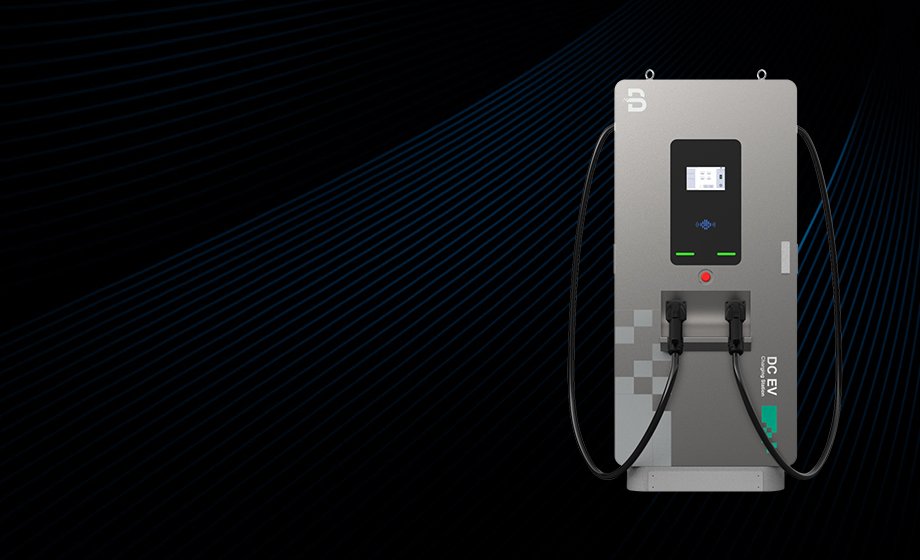If you, as a homeowner, install a photovoltaic system in Baden-Württemberg, you can access various funding options. These include statewide, municipal and nationwide funding. This guide provides an overview of all funding options in BW.
And this is the exact content of the article:
- What subsidies for photovoltaics are available in Baden-Württemberg?
- Municipal funding programs in Baden-Württemberg
- Nationwide subsidies for photovoltaics
What subsidies for photovoltaics are available in BW?
In Baden-Württemberg, the purchase of photovoltaic systems is supported at state level through the funding program "Living with a Future: Photovoltaics" This low-interest loan is available for the installation, modernization and expansion of PV systems with or without battery storage. You can combine these with other photovoltaic subsidies such as feed-in tariffs or municipal funding programs.
The conditions of the "Living with a Future: Photovoltaics" funding program are more attractive than those of the KfW funding program.
Compare photovoltaic offers now and save 30%!
Take 60 seconds and fill out a short form. We will connect you with up to five verified specialist companies in your region. The comparison is free and non-binding.
conditions
You will receive financing as subsidized loans through your own bank. The loan amount must be at least €5,000. The loan term can be 5, 10, 20 or 30 years, with 1 to 5 years of grace. You can freely withdraw the funding amount within 12 months of the loan being granted, after which a commitment fee of €0.15 per month is charged on loan amounts not yet paid out.
| loan amount | min. 5,000 € |
|---|---|
| Duration | 5 to 30 years |
| repayment-free years | 1 to 5 years |
| fixed interest rate | 5 to 10 years |
| payout | 100% |
| interest rate | 4,16% (4,24%) - 4,26% (4,34%) |
| Initial repayment | 1,78 - 22,97% |
| change in interest rate | 0,00% |
A special repayment is possible. Excluded are the statutory repayment claims within the framework of the extraordinary right of termination according to Section 490 of the German Civil Code (BGB).
What is being funded?
What you can finance:
- technical systems (PV system and battery storage),
- planning and project management,
- necessary construction measures,
- installation and connection,
- other costs (measuring devices, wallbox, etc.).
What you cannot finance:
- Installations in buildings with more than three residential units,
- Facilities for holiday homes and apartments as well as weekend homes or second homes.
Conditions
You must meet the following conditions:
- Residence in Baden-Württemberg;
- You use at least one of the residential units in the subsidised building yourself;
- You invest in the photovoltaic system yourself, which means you pay the bills;
- You have the system installed by a specialist company.
Municipal funding programs in Baden-Württemberg
With the introduction of the photovoltaic obligation For residential buildings in Baden-Württemberg, many municipalities set up funding programs for solar systems.
The following cities in Baden-Württemberg offer funding:
| municipality | discharge head |
|---|---|
| Stuttgart | PV roof system up to 350 € per kWp PV facade system up to 450 € per kWp Battery storage up to 300 € per kWh storage capacity |
| Darmstadt | 150 €/kWp for the first 10 kWp of a PV system |
| Freiburg | 150 €/kWp for PV systems with output greater than 0.02 kWp/m² Battery storage 150 € per kWh gross storage capacity |
| Heidelberg | 100 €/kWp for roof systems 250 €/kWp for green roof systems |
| Karlsruhe | 500 to 2,500 €, depending on the living space |
| Mannheim | 120 €/kWp for the first 10 kWp of a PV system |
| Tübingen | €1,500 for systems with 1 to 5 kWp, €2,250 for 6 to 10 kWp and €3,000 for systems over 10 kWp. Battery storage €150 per kWh gross storage capacity |
| Ulm | Building-integrated photovoltaics €400 per kWp PV systems in existing buildings €75 per kWp. Plug-in PV systems are subsidized with 50% of the costs (up to €250 per residential unit). |
Stuttgart
The "solar offensive" was launched in Stuttgart at the end of 2020 as part of the campaign "World Climate in Need - Stuttgart Acts". Its goal is to achieve climate neutrality in the city by 2050. The municipal funding program not only covers the acquisition costs, but also supports the necessary work associated with the installation of a photovoltaic system.
The city of Stuttgart grants a grant for the installation of solar power systems of up to 50% of the net costs per kWp of installed capacity. The maximum amount is €50,000 per application. For roof systems, the maximum subsidy is €350 per kWp, for facade systems up to €450 per kWp. There is a subsidy of €100 for balcony systems. The subsidy also covers the connection costs.
The maximum subsidy for battery storage is €20,000 per application at €300 per kWh of usable storage capacity. The subsidy is based on the installed kWp photovoltaic output. For a 10 kWp system, 0.8 kWh of storage capacity is subsidized. This means that a maximum of 8 kWh of the electricity storage unit is subsidized.
The charging infrastructure for electromobility is also subsidized, so that private individuals can receive up to €1,000 for the electrical installation. However, the purchase of a wallbox is not eligible for funding.
Freiburg
The city of Freiburg is implementing the funding programme "Climate-Friendly Living" a variety of measures, such as insulating the building envelope, using efficient heating and ventilation systems and generating electricity from renewable energies.
The subsidy for photovoltaic systems is around €150 per kWp. The maximum subsidy for a full roof coverage is €1,500. With a battery storage system, a subsidy of €150 per kWh of usable storage capacity is possible. The labor costs for balcony modules can be deducted from tax, resulting in a possible tax reduction of up to €1,200. The maximum amount that can be claimed is €6,000.
Heidelberg
Heidelberg offers subsidies for photovoltaic roof systems up to 100 kWp. The subsidy is 100 € per kWp, up to a maximum of 10,000 €. For green roof systems and facade systems Different funding conditions apply. Green roof systems up to 30 kWp are funded with €250 per kWp. Green roof systems between 31 and 100 kWp are funded with €150 per kWp. Facade systems up to 50 kWp receive a subsidy of €200 per kWp.
Compare photovoltaic offers now and save 30%!
Take 60 seconds and fill out a short form. We will connect you with up to five verified specialist companies in your region. The comparison is free and non-binding.
Karlsruhe
In Karlsruhe, the maximum amount of funding is €2,500. The minimum amount is €500. The amount of the subsidy depends on the size of the living space. For an area of more than 400 square meters, it is €500 per kWp. For areas under 400 square meters, it is €500 per kWp minus 0.02 kWp/m². An additional €100 per kWp is paid for facade systems.
Mannheim
The city of Mannheim grants PV projects a basic subsidy of €100 per kWp. The maximum subsidy is €1,000. For fully occupied roof areas or PV systems of 15 kWp or more, there is a premium subsidy of €160 per kWp. The maximum amount of the premium is €2,400.
Facade PV and PV systems with green roofs are subsidized with €200 per kWp. The maximum subsidy for facade PV is €3,000 and for PV systems with green roofs €3,750. Listed buildings receive a subsidy of €300 per kWp. The maximum subsidy for listed buildings is €4,500.
Tübingen
In Tübingen you can get a grant for the Iinstallation of PV modules on suitable roof areas. The amount of the subsidy depends on the size of the system:
- for systems with 1 to 5 kWp the subsidy is €1,500;
- for systems with 6 to 10 kWp the subsidy is €2,250;
- and for systems with more than 10 kWp the subsidy is €3,000.
Also for after north There are bonuses for oriented roofs and rooftop photovoltaic systems. Further information can be found in the city of Tübingen's funding guidelines for photovoltaic systems and electricity storage for old EEG systems.
Owners of existing PV systems can receive a subsidy for an electricity storage system that helps optimize or increase self-consumption. The city offers a subsidy of €150 per kWh of usable storage capacity, ranging from 1 to 30 kWh.
Ulm
Residential and office building in Ulm with building-integrated photovoltaics (BIPV) will receive a subsidy of €400 per kWp. Existing buildings with roof and facade photovoltaics as well as parking lot roofs are subsidized with 75 €/kWp. The testing of existing photovoltaic and solar thermal systems is subsidized with 50% of the costs, but a maximum of 500 €. Plug-in photovoltaic systems are subsidized with 50% of the costs, but a maximum of 250 € per residential unit.
Nationwide subsidies for photovoltaics
State funding is available to you in the form of the KfW 270 loan and the feed-in tariff.
KfW funding program 270
The KfW loan 270 is a low-interest loan from the Kreditanstalt für Wiederaufbau (KfW). It is available to both private individuals and companies to support the installation of PV systems to generate renewable energy. The financing covers the entire installation costs up to a maximum of 50 million euros.
KfW grant 442
From September 26, 2023, you could apply to KfW for a government subsidy for a new photovoltaic system with power storage and charging station for electric cars. The maximum subsidy rate was €10,200. The subsidy program was called "Solar Power for Electric Cars" and was a program of the Federal Ministry of Transport. Unfortunately, the subsidies for 2023 were exhausted within a very short time. New applications will not be accepted until 2024.
feed-in tariff
The feed-in tariff is a government subsidy that you receive when you feed self-generated solar power into the public grid. The feed-in tariff was last adjusted on July 30, 2022 and is valid until February 2024. You will receive:
- 13.0 cents per kWh for full feed-in and 8.2 cents per kWh for surplus feed-in for PV systems with up to 10 kWp,
- 10.9 cents per kWh for full feed-in and 7.1 cents per kWh for surplus feed-in for PV systems between 10 and 40 kWp,
- 10.9 cents per kWh for full feed-in and 5.8 cents per kWh for surplus feed-in for PV systems between 40 and 100 kWp.












